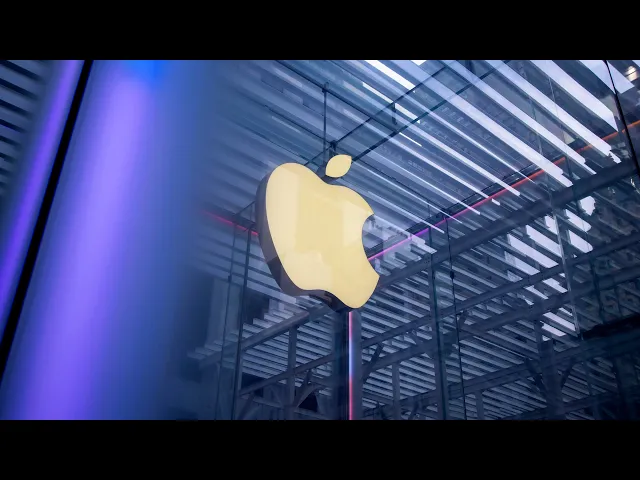Apple Struggles to Crack AI

Apple faces ai uphill battle
In a recent analysis of Apple's AI strategy, tech experts are pointing to concerning signs that the traditionally innovative company may be falling behind in the artificial intelligence race. While competitors like Google, Microsoft, and OpenAI have made significant strides in generative AI, Apple's cautious approach and historical focus on on-device processing appear to be creating challenges for the tech giant. This slow movement in AI raises questions about whether Apple can maintain its market leadership in an increasingly AI-driven tech landscape.
Key insights from the analysis:
-
Apple's traditional emphasis on privacy and on-device processing conflicts with the cloud-based computation needs of today's most advanced AI systems
-
The company's strategy of acquiring AI startups and making incremental improvements has not yielded breakthrough AI capabilities to match competitors
-
Despite having early advantages in areas like voice assistance with Siri, Apple failed to maintain its lead, allowing competitors to surpass its AI capabilities
-
Apple faces a challenging balancing act between maintaining its privacy-centric approach and delivering competitive AI features that users increasingly expect
The most illuminating aspect of this analysis is Apple's fundamental structural disadvantage in AI development. The company built its reputation on tightly integrated hardware-software experiences where computation happens on user devices. This approach prioritizes privacy but severely constrains AI capabilities compared to cloud-based systems that can leverage vastly more computational power and data. Google and Microsoft, with their extensive cloud infrastructure and data access, have natural advantages that Apple's business model makes difficult to overcome.
This matters tremendously in today's tech environment because AI is rapidly becoming the differentiating factor across the technology landscape. The next generation of computing experiences will be defined by AI capabilities, and Apple's current trajectory suggests it may struggle to deliver the kinds of AI features consumers will increasingly expect. For a company whose premium pricing depends on delivering superior experiences, falling behind in AI represents an existential threat to its business model.
What's particularly interesting is how this challenge mirrors Apple's initial reluctance to embrace cloud services generally. For years, Apple treated cloud capabilities as secondary to device experiences, allowing competitors like Google to establish dominance in areas like photos, maps, and email. The company eventually developed stronger cloud offerings, but never fully closed the gap. With AI, the stakes are arguably much higher, as these technologies will reshape the fundamental ways users interact with their devices.
Recent Videos
How To Earn MONEY With Images (No Bullsh*t)
Smart earnings from your image collection In today's digital economy, passive income streams have become increasingly accessible to creators with various skill sets. A recent YouTube video cuts through the hype to explore legitimate ways photographers, designers, and even casual smartphone users can monetize their image collections. The strategies outlined don't rely on unrealistic promises or complicated schemes—instead, they focus on established marketplaces with proven revenue potential for image creators. Key Points Stock photography platforms like Shutterstock, Adobe Stock, and Getty Images remain viable income sources when you understand their specific requirements and optimize your submissions accordingly. Specialized marketplaces focusing...
Oct 3, 2025New SHAPE SHIFTING AI Robot Is Freaking People Out
Liquid robots will change everything In the quiet labs of Carnegie Mellon University, scientists have created something that feels plucked from science fiction—a magnetic slime robot that can transform between liquid and solid states, slipping through tight spaces before reassembling on the other side. This technology, showcased in a recent YouTube video, represents a significant leap beyond traditional robotics into a realm where machines mimic not just animal movements, but their fundamental physical properties. While the internet might be buzzing with dystopian concerns about "shape-shifting terminators," the reality offers far more promising applications that could revolutionize medicine, rescue operations, and...
Oct 3, 2025How To Do Homeless AI Tiktok Trend (Tiktok Homeless AI Tutorial)
AI homeless trend raises ethical concerns In an era where social media trends evolve faster than we can comprehend them, TikTok's "homeless AI" trend has sparked both creative engagement and serious ethical questions. The trend, which involves using AI to transform ordinary photos into images depicting homelessness, has rapidly gained traction across the platform, with creators eagerly jumping on board to showcase their digital transformations. While the technical process is relatively straightforward, the implications of digitally "becoming homeless" for entertainment deserve careful consideration. The video tutorial provides a step-by-step guide on creating these AI-generated images, explaining how users can transform...
